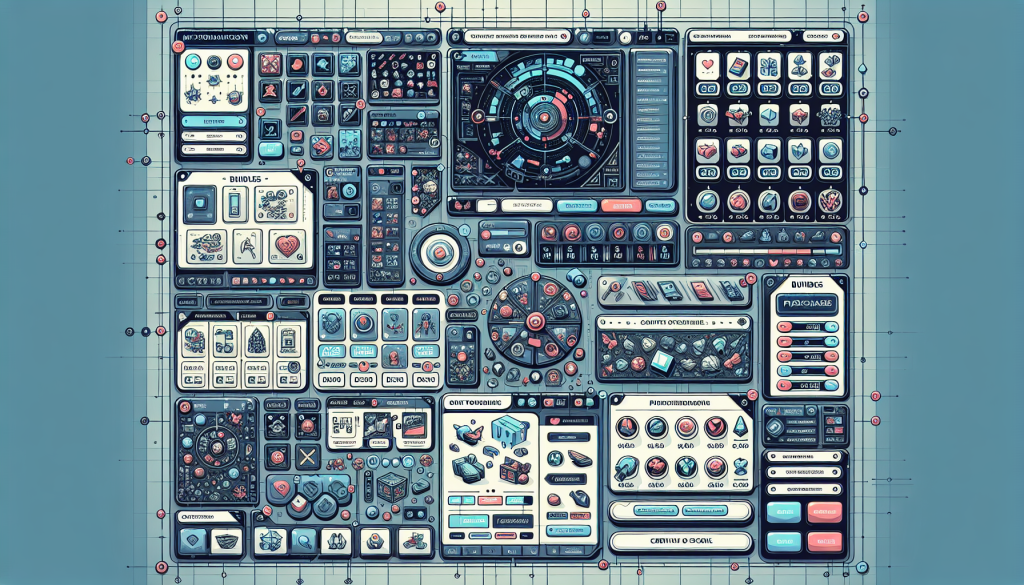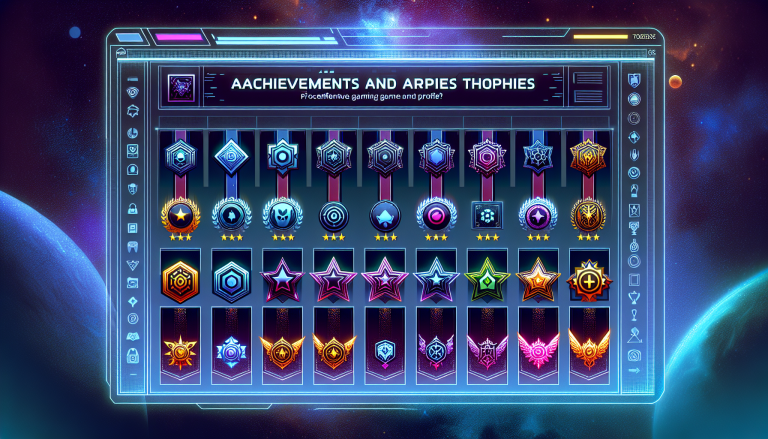Understanding the Current Integration of AI in Gaming
Ever noticed how your virtual opponent in a chess game seems to know your next move? Or how the Non-Player Characters (NPCs) in your favorite RPG seem to have a mind of their own? That’s the power of Artificial Intelligence (AI) at work in the gaming world. But it’s not just limited to creating challenging opponents or realistic NPCs. The integration of AI in gaming is shaping the industry in ways we could only dream of a few years ago.
Let’s delve into this exciting topic and discover how AI has already begun its game-changing journey!
Enhancing Gameplay Through AI
AI has always been at the heart of a game’s ‘intelligence’. It plays a crucial role in creating immersive, engaging, and dynamic gaming environments. Today, AI’s application extends beyond building challenging game scenarios or randomly generating in-game content. For instance, in games like ‘The Last of Us,’ AI is used to create believable enemy characters that make decisions and learn from the player’s behavior. This makes the gameplay less predictable and more thrilling.
Creating Realistic Virtual Worlds
Another exciting application of AI in gaming is the creation of realistic, in-game worlds. AI algorithms help generate complex environments with intricate details that would take human developers ages to design. These algorithms learn from real-world data and then apply this knowledge to create lifelike forests, cities, and even entire planets in games. This allows for a more immersive gaming experience.
Transforming Player Interaction
AI is also transforming the way players interact within the game. With the help of Natural Language Processing (NPL), an AI technology, game characters can understand and respond to voice commands or text inputs from players. This leads to more interactive and engaging gameplay.
Boosting Game Development
AI is not just revolutionizing the gaming experience for the players, but it is also proving to be a game-changer for the developers. Machine Learning, a subset of AI, can help predict player behavior and preferences, ultimately enabling developers to create games that players actually want to play. Furthermore, AI tools speed up the game development process by automating tasks such as coding, testing, and debugging, thereby reducing the time and cost of developing a game.
So, if you’ve ever enjoyed a challenging opponent in a strategy game, appreciated the realistic details in a virtual world, or been amazed by your in-game character’s understanding of your commands, you have AI to thank for it. The integration of AI in gaming has already transformed the industry in countless ways and promises to continue doing so in the future.
Forecasting the Evolution of AI in Game Development
Imagine playing a video game where every NPC (non-playable character) has a unique personality, reacts differently according to your actions, and where your gameplay choices have real, dynamic consequences. This is not science fiction; advancements in AI are driving game development towards this future. Let’s have a chat about the role of AI in transforming the landscape of game development.
Firstly, realistic graphics and engaging storylines are no longer the sole determinants of a great gaming experience. The new buzzword in the gaming industry is ‘procedural generation’, a technique that leverages AI to automatically generate content such as levels, landscapes, and even entire universes. Games like ‘No Man’s Sky’ have successfully used this technique to create an almost infinite universe for players to explore.
Another exciting development is the advent of ‘adaptive AI’. This enables games to learn from the player’s behavior and modify the gameplay accordingly. For instance, AI-controlled characters can become more challenging or easier to beat based on your playing style, creating a personalized gaming experience.
- Deep Learning: This form of AI, inspired by the human brain, uses artificial neural networks to ‘teach’ the game to understand and respond to a player’s habits and preferences. This can lead to more immersive and unpredictable gameplay.
- Machine Learning: Machine learning algorithms can analyze vast amounts of data to predict player behavior and adapt the game environment accordingly. This adds a new layer of complexity and realism to games.
AI also has the potential to revolutionize the development process itself. From automating tedious tasks like bug testing to creating realistic NPC behavior, AI can save game developers a lot of time and resources. It can also help in the creation of sophisticated, lifelike animations using less computational power, making games more accessible for users with low-end devices.
What’s next for AI in Gaming?
While these advances are exciting, they are just the tip of the iceberg. The future of AI in game development is likely to include emotion recognition technology, where games can respond to a player’s facial expressions or tone of voice. Imagine a horror game that becomes scarier as it senses your fear, or a strategy game that becomes more challenging as you show signs of boredom.
Another promising technology is AI-driven voice interaction. This could make NPC dialogues more realistic and engaging, and can also be used in educational games to improve language learning.
As we can see, AI is becoming an indispensable tool in game development, enriching gameplay experiences and streamlining the development process. So, strap in, and get ready for a future where games will know you better than you know yourself!
Exploring AI’s Potential in Transforming Gameplay Experience
It seems like every time you turn around, there’s a new development in the world of gaming. One of the most exciting and impactful changes in recent years has been the advent of Artificial Intelligence (AI). So, let’s dive in and explore how AI is set to transform our gaming experiences.
Bringing Non-Player Characters to Life
One of the first things AI can do is to breathe life into Non-Player Characters (NPCs). You know those characters you interact with in the game but don’t control? They’re about to become a whole lot more realistic.
With AI, NPCs can start to learn as they interact with the player. So, that guard who used to just stand there while you snuck past? Now he might start patrolling or setting traps. The potential for dynamic and immersive gameplay is enormous.
Customised Gaming Experiences
Next up is the potential for AI to offer customised gaming experiences. Imagine a game that adapts to how you play. No more ‘one size fits all’ games. Instead, each game could be tailored to individual players, making gameplay more engaging and challenging.
This might mean the game adjusting its difficulty based on your skill level, or NPCs that remember your past interactions and react accordingly.
Creating Procedural Content
AI also has the potential to aid in the creation of procedural content. This means that the game can generate its own environments, quests or characters, creating a unique experience each time you play.
Imagine exploring a world that’s different every time you log in, or facing new and unique challenges each time you start a new quest. This could significantly increase the replayability of games and keep players engaged for longer.
Supporting Game Development
Finally, AI has a role to play behind the scenes in game development itself. For instance, AI can help game designers by automating some of the more time-consuming aspects of game creation.
This might include creating realistic animations, optimising game performance, or even helping to design levels. This could speed up the development process, allowing developers to focus more on creating engaging gameplay experiences.
In conclusion, with AI’s potential in transforming gameplay experience, the future of gaming looks incredibly exciting. Whether you’re a gamer or a game developer, there’s no denying the impact AI is set to have on our virtual adventures.
Case Studies: Successful AI Implementations in the Gaming Industry
Gaming aficionados, brace yourselves! Today we’re diving into some fascinating examples of how Artificial Intelligence (AI) has taken the gaming industry by storm. From creating unpredictable enemies to mimicking human-like intelligence, AI has proven to be a game-changer.
The Witcher 3: Wild Hunt
Who can forget the mesmerizing world of The Witcher 3: Wild Hunt? The game is a stellar example of using AI for creating dynamic and immersive environments. The Non-Player Characters (NPCs) in the game have their own routine—they eat, sleep, work, and even react to weather changes—making the gameplay experience remarkably lifelike. The AI adapts to player actions, ensuring an unpredictable and exciting gaming experience.
Alien: Isolation
Alien: Isolation, a survival horror game, truly stands out due to its use of AI. The Alien hunts you with a persistence and intelligence rarely seen in games. The developers created two AI systems; one controlled the Alien’s moment-to-moment actions while the other, an overseer, nudged the Alien into the player’s general vicinity but never directly at them, enhancing the tension and unpredictability.
Far Cry series
The Far Cry series showcases how AI can create a realistic wildlife system. Animals in the game have their behavior patterns—they hunt, eat, rest, and even interact with each other. These AI-controlled animals can also affect the player’s strategy, adding an extra layer of complexity to the game.
Shadow of Mordor: Nemesis System
In Shadow of Mordor, you’ll be amazed by the unique Nemesis System. The AI remembers the player’s interactions with specific characters and changes their behavior based on that history. This results in a personalized gaming experience where enemy relationships and behaviors are just as unpredictable as they would be in the real world.
These are just a few examples of how AI has enhanced game development and player experiences. The role of AI in gaming is only set to increase, and as it does, we can expect even more immersive and dynamic gaming experiences. One thing’s for certain—the future of gaming is incredibly exciting, and AI is leading the charge!












